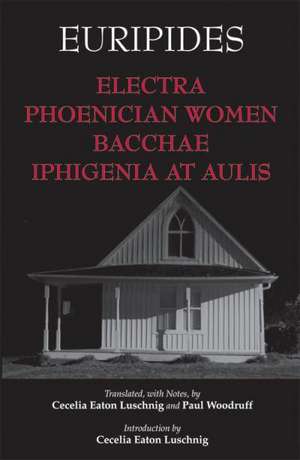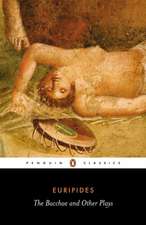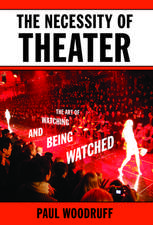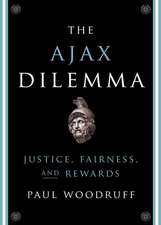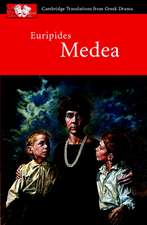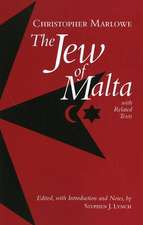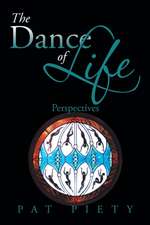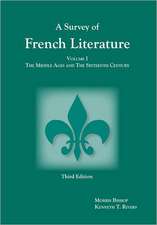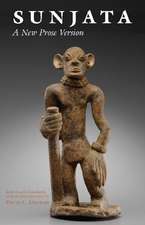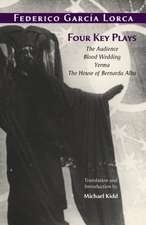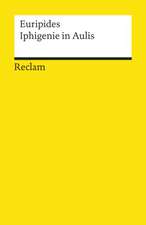Euripides: Electra, Phoenician Women, Bacchae, and Iphigenia
Autor Euripides Traducere de Paul Woodruffen Limba Engleză Paperback – 14 mar 2011
| Toate formatele și edițiile | Preț | Express |
|---|---|---|
| Paperback (4) | 86.31 lei 31-37 zile | |
| Hackett Publishing Company – 14 mar 2011 | 96.92 lei 3-5 săpt. | |
| Oxford University Press – feb 2001 | 86.31 lei 31-37 zile | |
| Oxford University Press – 18 ian 2001 | 140.23 lei 31-37 zile | |
| Oxford University Press – mai 1999 | 160.44 lei 31-37 zile | |
| Hardback (1) | 453.20 lei 3-5 săpt. | |
| Oxford University Press – mai 1999 | 453.20 lei 3-5 săpt. |
Preț: 96.92 lei
Preț vechi: 103.33 lei
-6% Nou
Puncte Express: 145
Preț estimativ în valută:
18.55€ • 19.29$ • 15.31£
18.55€ • 19.29$ • 15.31£
Carte disponibilă
Livrare economică 24 martie-07 aprilie
Preluare comenzi: 021 569.72.76
Specificații
ISBN-13: 9781603844604
ISBN-10: 1603844600
Pagini: 326
Dimensiuni: 143 x 216 x 14 mm
Greutate: 0.4 kg
Editura: Hackett Publishing Company
ISBN-10: 1603844600
Pagini: 326
Dimensiuni: 143 x 216 x 14 mm
Greutate: 0.4 kg
Editura: Hackett Publishing Company
Recenzii
this translation merits serious thought for classroom and even scholarly use. Of particular interest is Segal's extensive reconstruction of the lacunae that mar the end of the Bakkhai, including the so-called compositio membrorum of Pentheus.
Gibbons ... has crafted a lyrical verse translation that displays an evident understanding of and respect fo the source text.
This is a lovely, thoughtful edition of the play, and between Gibbon's sturdy verse and Segal's sensitive notes, one can hardly go wrong in assigning the text to an introductory literature class. And even more advanced students of Greek tragedy will wish to examine Segal's valuable appendix on the compositio membrorum, a succinct and insightful bit of scholarship in its own right.
Gibbons ... has crafted a lyrical verse translation that displays an evident understanding of and respect fo the source text.
This is a lovely, thoughtful edition of the play, and between Gibbon's sturdy verse and Segal's sensitive notes, one can hardly go wrong in assigning the text to an introductory literature class. And even more advanced students of Greek tragedy will wish to examine Segal's valuable appendix on the compositio membrorum, a succinct and insightful bit of scholarship in its own right.
